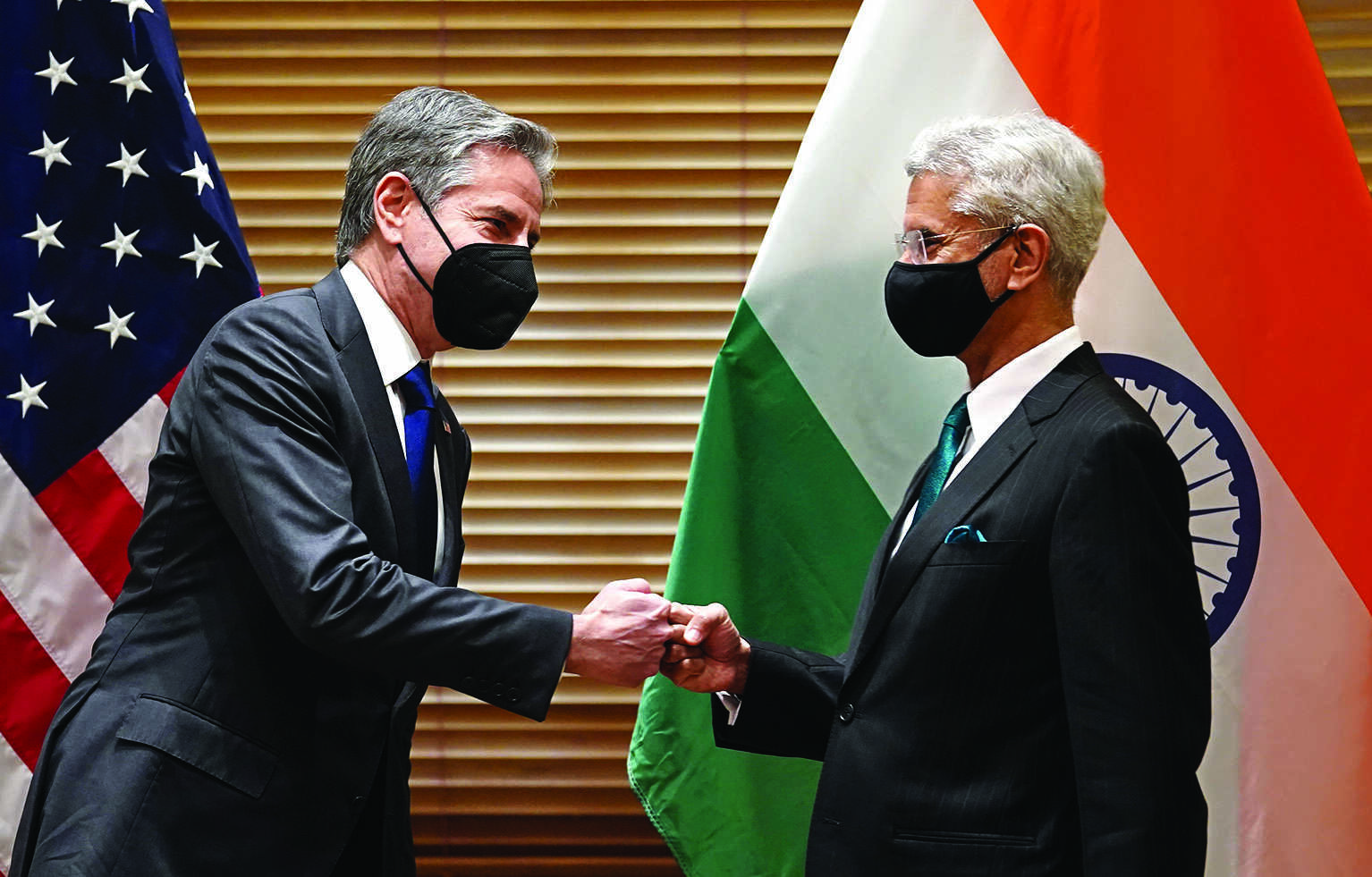Quad resolves to keep Indo-Pacific free from coercion

New Delhi: The foreign ministers of Quad on Friday vowed to expand cooperation to keep the Indo-Pacific free from "coercion", denounced the use of terrorist proxies for cross-border terrorism, assessed the Ukraine crisis and asserted that Afghan territory should not be used to threaten or attack any country. The coalition also said that the first batch of COVID-19 vaccines under the Quad initiative will be delivered in the first half of 2022.
External Affairs Minister S Jaishankar and his counterparts from the US, Australia and Japan, at a meeting in Melbourne, also held that the "ungoverned spaces" in Afghanistan pose a direct threat to the safety and security of the Indo-Pacific, and expressed grave concerns over the situation in Myanmar.
Referring to the Ukraine conflict, US Secretary of State Antony Blinken said at a joint media briefing that Russia would face "massive consequences" if it renewed aggression towards the Eastern European nation and that Washington is following an approach of diplomacy and dialogue to resolve the issue.
The Ukraine issue did not figure in a joint statement issued after the meeting though Blinken and Australian Foreign Minister Marise Payne criticised Russia over the crisis while Japanese foreign minister Yoshimasa Hayashi said that Tokyo is for protecting that country's sovereignty.
The statement issued after the meeting called upon all countries to ensure that territory under their control is not used to launch terror attacks and reiterated condemnation of terrorist attacks in India, including the 26/11 Mumbai and Pathankot attacks.
"In the meeting, we reaffirm the Quad's commitment to supporting Indo Pacific countries' efforts to advance a free and open Indo-Pacific -- a region which is inclusive and resilient, and in which states strive to protect the interests of their people, free from coercion," the statement said.
The reference to coercion is seen as a veiled message to China that has been increasing its military muscle-flexing in the Indo-Pacific.
The Japanese foreign minister said that the next Quad Leaders' Summit will take place in Japan in the first half of 2022.
The joint statement said the Quad partners "oppose coercive economic policies and practices that run counter to this system and will work collectively to foster global economic resilience against such actions," seen as another oblique reference to China.
Jaishankar said that the aim has been to further the shared vision of a free, open and inclusive Indo-Pacific and that India will work with the Quad partners to give shape and substance to the grouping's positive agenda to make it a force for global good.
"As leading democracies, we pursue our shared vision of upholding a rules-based international order free from coercion, one based on respect for territorial integrity and sovereignty, the rule of law, transparency, freedom of navigation in the international seas, and peaceful resolution of disputes," he said at the meeting.
He said there is ample scope to work together on global issues such as terrorism, cyber security, maritime security, and disinformation and that India continues to pursue an "agile" and multidimensional strategy towards the Indo-Pacific.
"Impressed by the progress we have made," Jaishankar said in a tweet.
Jaishankar, Blinken, Hayashi and Payne made a joint call on Australian Prime Minister Scott Morrison before the Quad meet.
The Quad foreign ministers also denounced the use of terrorist proxies for cross-border terrorism and urged countries to work together to eliminate terrorist safe havens, disrupt terrorist networks, infrastructure and financial channels that sustain them.
The Quad foreign ministers also expressed grave concerns over the crisis in Myanmar and called for an end to violence and the release of all those detained arbitrarily.
About the COVID-19 pandemic, it said that Quad partners have collectively provided more than 500 million vaccine doses and that they have pledged to donate more than 1.3 billion vaccine doses globally. "We are assisting to train healthcare workers, combat vaccine hesitancy and augment infrastructure, especially cold chain systems, for 'last mile' vaccine delivery," the joint statement said.



